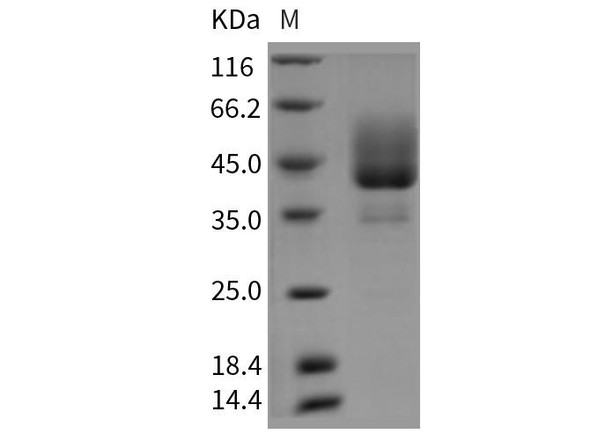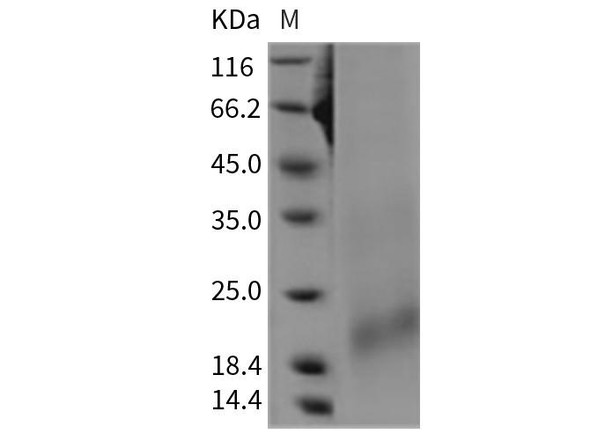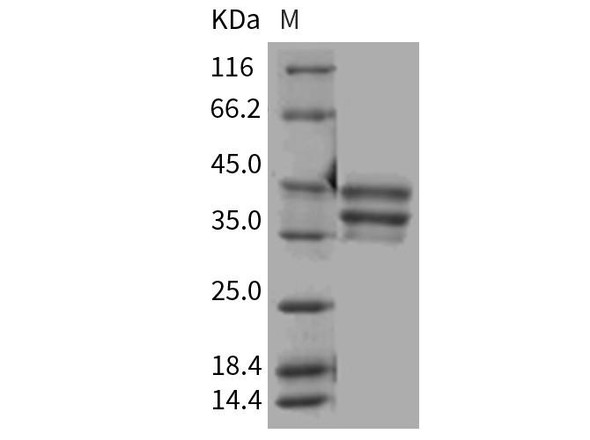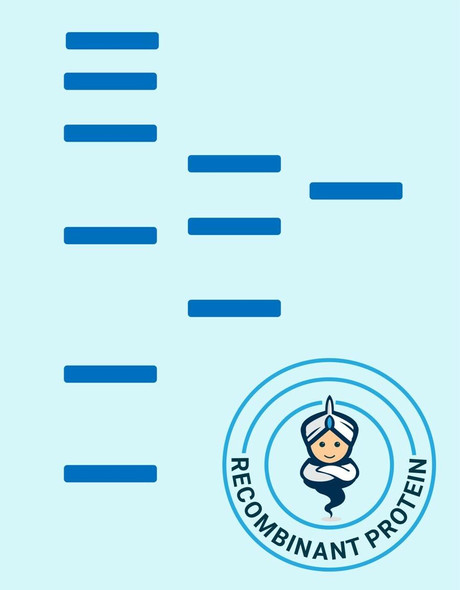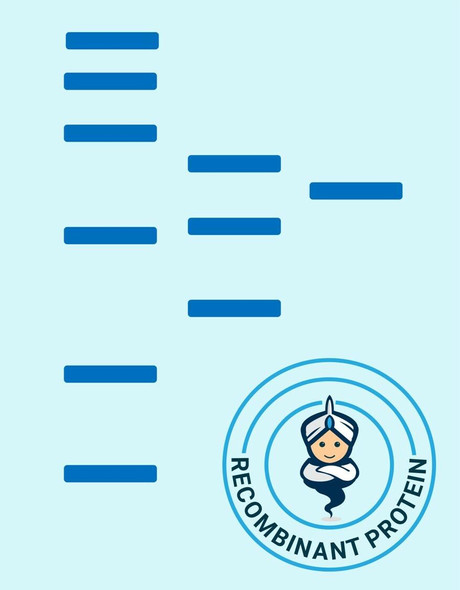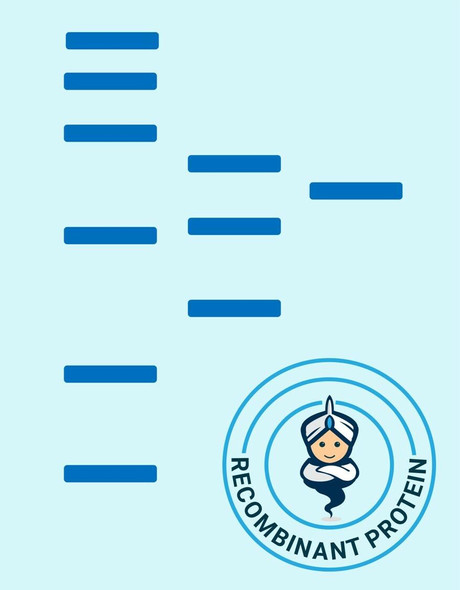| Sequence: | Ser7-Ala71 |
| Accession: | Q96RJ3 |
| Storage: | Generally, lyophilized proteins are stable for up to 12 months when stored at -20 to -80°C. Reconstituted protein solution can be stored at 4-8°C for 2-7 days. Aliquots of reconstituted samples are stable at < -20°C for 3 months. |
| Shipping: | This product is provided as lyophilized powder which is shipped with ice packs. |
| Formulation: | Lyophilized from sterile PBS, pH 7.4. Normally 5 % - 8 % trehalose, mannitol and 0.01% Tween80 are added as protectants before lyophilization. Please refer to the specific buffer information in the printed manual. |
| Reconstitution: | Please refer to the printed manual for detailed information. |
| Background: | Tumor necrosis factor receptor superfamily, member 13C (TNFRSF13C) also known as B-cell-activating factor receptor (BAFFR) and CD268 antigen, is a member of the tumor necrosis factor receptor superfamily. BAFF promotes the survival of B cells and is essential for B cell maturation. BAFF binds to three TNF receptor superfamily members: B-cell maturation antigen (BCMA/TNFRSF17), transmembrane activator and calcium-modulator and cyclophilin ligand interactor (TACI/TNFRSF13B) and BAFF receptor (BAFF R/BR3/TNFRSF13C). These receptors are type III transmembrane proteins that lack a signal peptide. BAFF R is highly expressed in spleen, lymph node and resting B cells. It is also expressed at lower levels in activated B cell, in resting CD4+ T cells, in thymus and peripheral blood leukocytes. BAFF knockout mice lack mature B cells. Similarly, A/WySnJ mice that are defective in BAFF-R intracellular signaling also lack mature B cells, suggesting that BAFF R is the critical receptor for BAFF during B lymphopoiesis. It has been proposed that abnormally high levels of BAFFR/TNFRSF13C (CD268) may contribute to the pathogenesis of autoimmune diseases by enhancing the survival of autoreactive B cells. |



